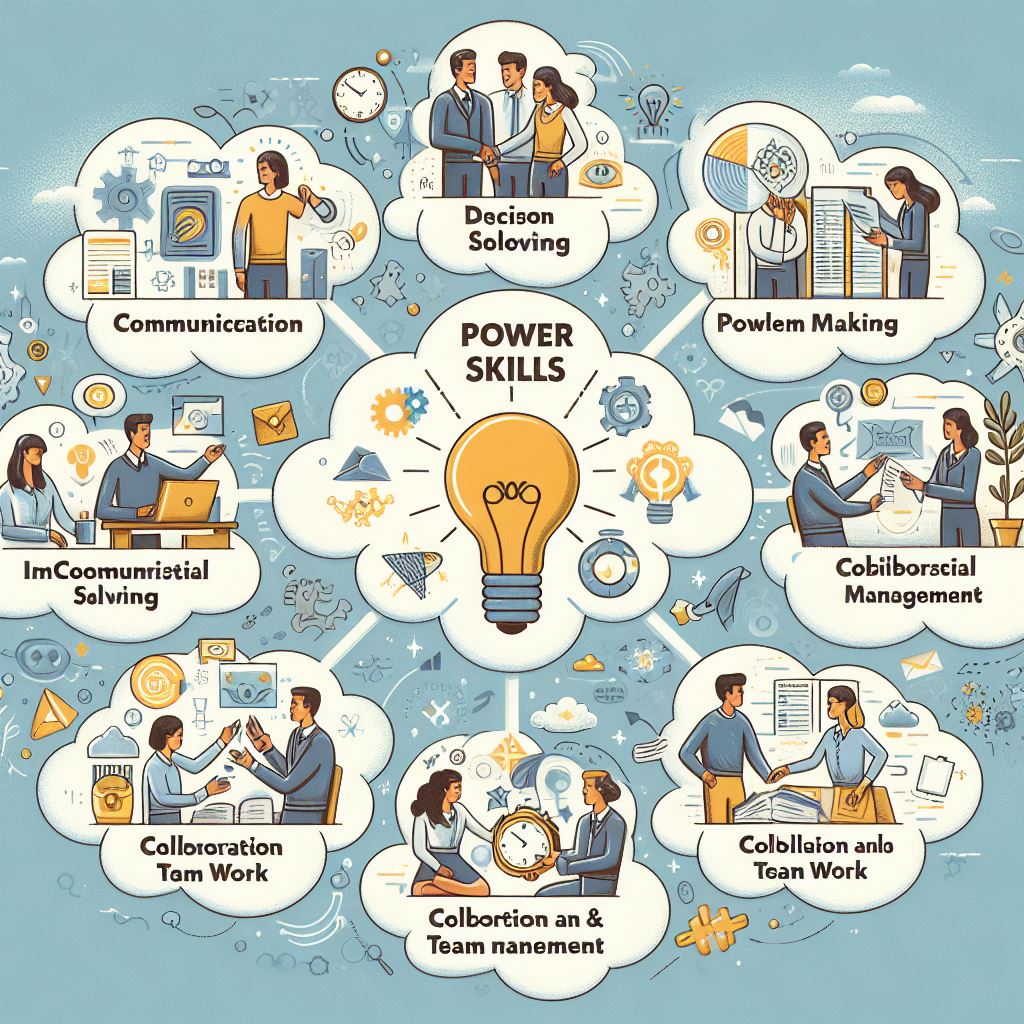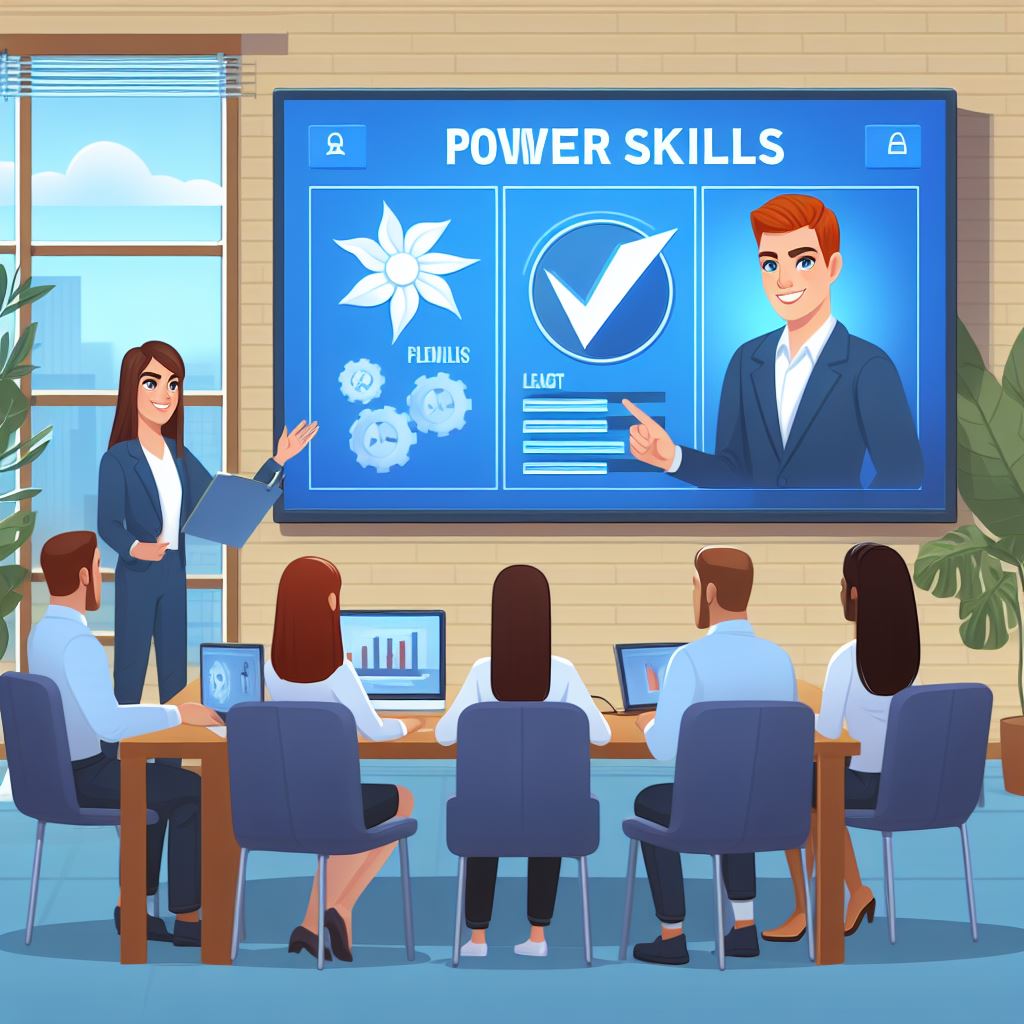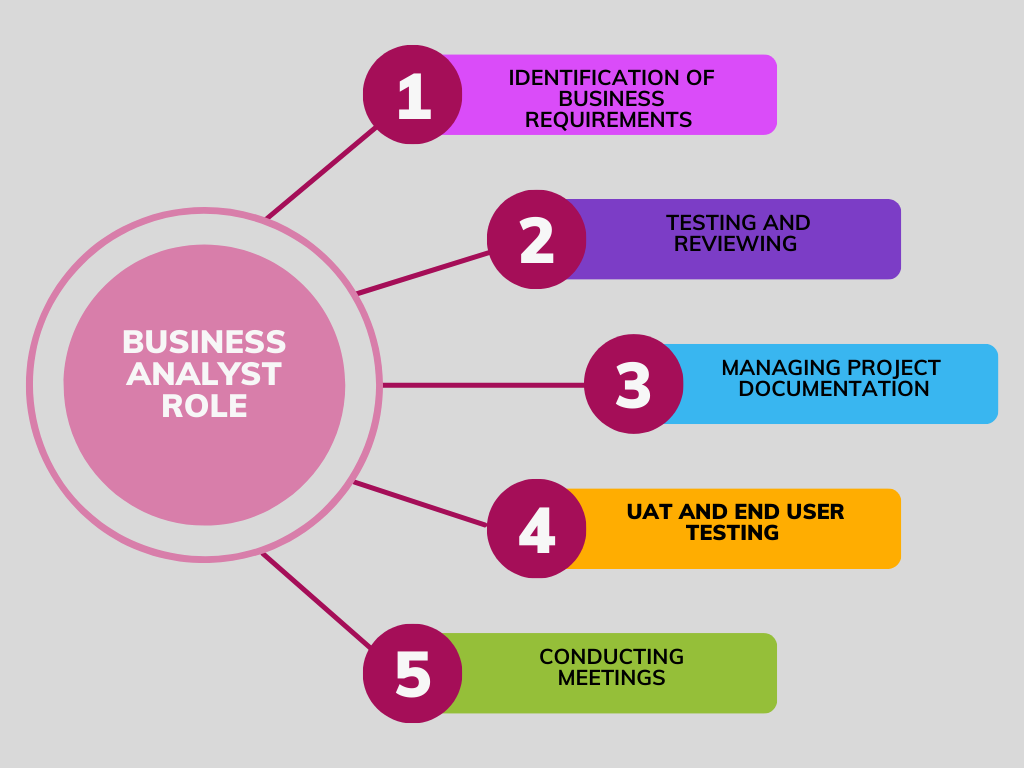Some of us are naturally born with Power skills and some of us have to make an effort, practise, get coached to improve our Power skills. Power skills play an important role in our careers as well as personal lives. Some power skills are important at work and others in your personal lives.
Introduction
The professional landscape is rapidly evolving. Along with technical skills, power skills are equally important. You may be wondering what are Power skills? Soft skills are often referred as Power skills. Around 12 soft skills put together form Power skills. Let’s take a close look at each one of them and understand their importance.
What are Power Skills?
Equipped with Power skills, an individual is able to interact effectively and efficiently with others. Power skills are subjective and related to personal traits, attitudes and behaviour. Hard skills or technical skills are specific and teachable.

Key Power Skills
Accountability
Have you heard your parents saying, “Be accountable for your actions” What do they really mean by this and how does it impact your work life? It simply means that you need to take ownership of your words into actions. For example: In personal life, when you sign-off for an expensive course; you are accountable to put in your 100% to ensure success. Similarly, in professional world, when you say you will get the job done, it means you are taking accountability of what you said.
Digital Literacy
Digital literacy has emerged as a crucial power skill, encompassing the ability to effectively and critically navigate, evaluate, and create information using a range of digital technologies. It involves an understanding of online safety, digital ethics, and the capacity to communicate and collaborate in virtual environments. As workplaces increasingly rely on digital tools and platforms, possessing strong digital literacy skills is essential for productivity and innovation. It empowers individuals to leverage technology to solve problems, engage in continuous learning, and participate fully in the digital economy. Ultimately, digital literacy fosters a more informed and connected society, equipping individuals with the capabilities to adapt to the ever-evolving digital landscape.
Collaboration and teamwork
Collaboration and teamwork are essential power skills that accelerate organizational success and innovation. These competencies include the ability to work effectively with others towards a shared goal, utilizing diverse perspectives and strengths to achieve outstanding results. Successful collaboration demands clear communication, mutual respect, and constructive conflict resolution. In a team-centric environment, the unique abilities and insights of each member contribute to problem-solving and innovative thinking, creating a space where ideas can be exchanged and honed. With the growing adoption of collaborative tools and frameworks by businesses, the skill to collaborate effectively in teams is more vital than ever, allowing organizations to quickly adapt to new challenges and seize opportunities for growth and enhancement.
Emotional Intelligence
In a given environment or circumstance, your emotions play a role in communicating your feelings to the front person. Emotional intelligence (EI) is a critical skill. This includes the ability to recognize, comprehend, control, and influence one’s own emotions and those of others. When practicing emotional intelligence, it requires significant self-awareness, self-regulation, empathy, and social abilities, which are vital for successful interpersonal relations and leadership.
High emotional intelligence is required to handle social complexities, foster and sustain strong relationships. It also helps you make thoughtful empathetic choices. By practising emotional intelligence, you will be promoting team work, manage stress and communicate more effectively.
Persuasive negotiator
Who does not like to influence others? However, the degree of influencing and the purpose varies. Irrespective, being a persuasive negotiator is a vital power skill that involves the ability to influence others and reach mutually beneficial agreements through effective communication and strategic thinking.
To be a persuasive negotiator, you need to be:
- an active listener
- empathetic
- build rapport
- create trust and openness
- navigate conflicts
- convincing
- remain flexibility
- adapt to new information and perspectives
Conflict Management
Conflict management is a crucial skill that involves effectively handling disagreements and disputes. It necessitates a thorough understanding of conflict causes, robust communication abilities, and maintaining composure and neutrality. Skilled conflict managers engage in active listening, acknowledge all parties’ concerns, and strive for a mutually agreeable resolution. They utilize techniques like mediation, negotiation, and problem-solving to prevent conflicts from worsening, thus promoting a constructive and collaborative atmosphere. In a professional setting, proficient conflict management enhances interpersonal relationships, boosts productivity, and fosters a cohesive team environment, which is vital for an organization’s success and stability.
Decision making
Every individual needs to make decisions. The decision-making process is a tedious one and a critical power skill. Effective decision-makers leverage analytical thinking, intuition, and experience to evaluate options and consider potential consequences. A good decision maker will gather information, weight the pro and cons and analyse the impact of the decision. Strong decision-making skills contribute to efficient problem-solving, strategic planning, and leadership, enabling organizations to navigate challenges and seize opportunities with confidence.
Problem solving
To solve problems, once must possess the following abilities:
- critical thinking
- creativity
- persistence
- methodical approach
- gather relevant information
- making informed decisions
- continuous improvement
- consider various perspectives
Interpersonal skills
These skills are required to interact with others and socialize. Having good interpersonal skills can help you network with others, land jobs, crack deals and make you popular in your community. To acquire these skills, one must possess or cultivate:
- active listening
- conflict resolution
- interact effectively
- respect different view points
- convey your ideas clearly
Time Management
There are various techniques to manage time. Time management is an essential skill as you will have to commit to deadlines and work towards meeting those deadlines. To manage time effectively, one must:
- Prioritize the work
- Set goals
- Delegate, if required
- Break-down the work into smaller chunks
- use to do list
- time tracking apps
- prioritization
Presentation skills
Not everyone is skilled at making and giving presentations. However, presentations skills can be learnt and made better over a period of time. To make a better version of yourself, consider the following:
- Organize your content logically
- Use visual aids like slides, charts, videos
- Practise delivering your content
- Focus on clarity
- Do not put too much content
- Use bullet points
- Seek feedback
- Record yourself and review to improve the areas of improvement.
- Practise relaxation techniques
By honing the above aspects, you will become effective and compelling presenter.
Communication
Effective communication is 20% what you know and 80% how you feel about what you know.
Jim Rohn
One starts communication as a child and as you grow, you improve your communication skills by ways of improved vocabulary, use body language, and cues. It is not important to have varied vocabulary but to use the vocabulary you know in the right context. Along with good verbal communication, you need to be a good listener as well. You should pay attention to verbal cues such as eye contact, facial expressions and posture to convey confidence and sincerity. When communicating, be concise and precise.
Conclusion
Power skills are important to have a wholistic growth in both your professional and personal life. One can always practise and get better at these power skills. By understanding, developing, and applying these skills, individuals can improve their interactions, leadership capabilities, and adaptability in a dynamic work environment
If you are interested in reading about career options, click here.
External Links
- Coursera – Communication Skills for Workplace Success
- LinkedIn Learning – Leadership Courses
- Harvard Business Review – The Importance of Emotional Intelligence
- MindTools – Time Management Skills
- Forbes – Why Power Skills Are More Important Than Ever
FAQs
- What are power skills?
- Power skills, also known as soft skills, are a set of interpersonal, communication, and emotional intelligence abilities that are essential for success in both personal and professional life. They include skills such as communication, teamwork, leadership, problem-solving, and time management.
- Why are they important?
- Power skills are important because they enable individuals to effectively collaborate, communicate, and lead in diverse environments. They are critical for building relationships, resolving conflicts, and adapting to changing circumstances, ultimately driving personal and professional success.
- How can I develop these skills?
- You can develop power skills through various methods, including training programs, workshops, practice, and feedback. Focus on areas such as communication, emotional intelligence, teamwork, and leadership, and seek opportunities to apply and refine these skills in your daily life and work.
- What are examples of power skills?
- Examples of power skills include communication, emotional intelligence, teamwork, leadership, critical thinking, problem-solving, time management, adaptability, creativity, and conflict resolution.
- Are these skills more important than technical skills?
- While technical skills are essential for specific job roles, power skills are often considered equally important, if not more so, for overall success in the workplace. Power skills enable individuals to effectively apply their technical expertise, collaborate with others, and navigate complex professional environments.
- How do these skills differ from hard skills?
- Power skills, or soft skills, are interpersonal and behavioral abilities that focus on how individuals interact with others and navigate social dynamics. Hard skills, on the other hand, are specific, teachable skills that are typically job-related and technical in nature, such as programming, accounting, or graphic design.
- Can power skills be taught?
- Yes, power skills can be taught and developed through training, practice, and feedback. While some individuals may naturally excel in certain areas, everyone has the potential to improve their power skills with dedication and effort.
- What are the benefits of improving these skills?
- Improving power skills can lead to numerous benefits, including enhanced communication, stronger relationships, better teamwork, increased leadership effectiveness, improved problem-solving abilities, higher productivity, and greater overall job satisfaction.
- How do power skills impact career advancement?
- Power skills play a significant role in career advancement by helping individuals stand out as effective communicators, leaders, and collaborators. Employers value these skills in employees and often look for them when considering promotions and leadership opportunities.
- Where can I learn more about these skills?
- You can learn more about power skills through online courses, workshops, books, articles, and professional development programs offered by universities, colleges, and organizations specializing in leadership and personal development.





